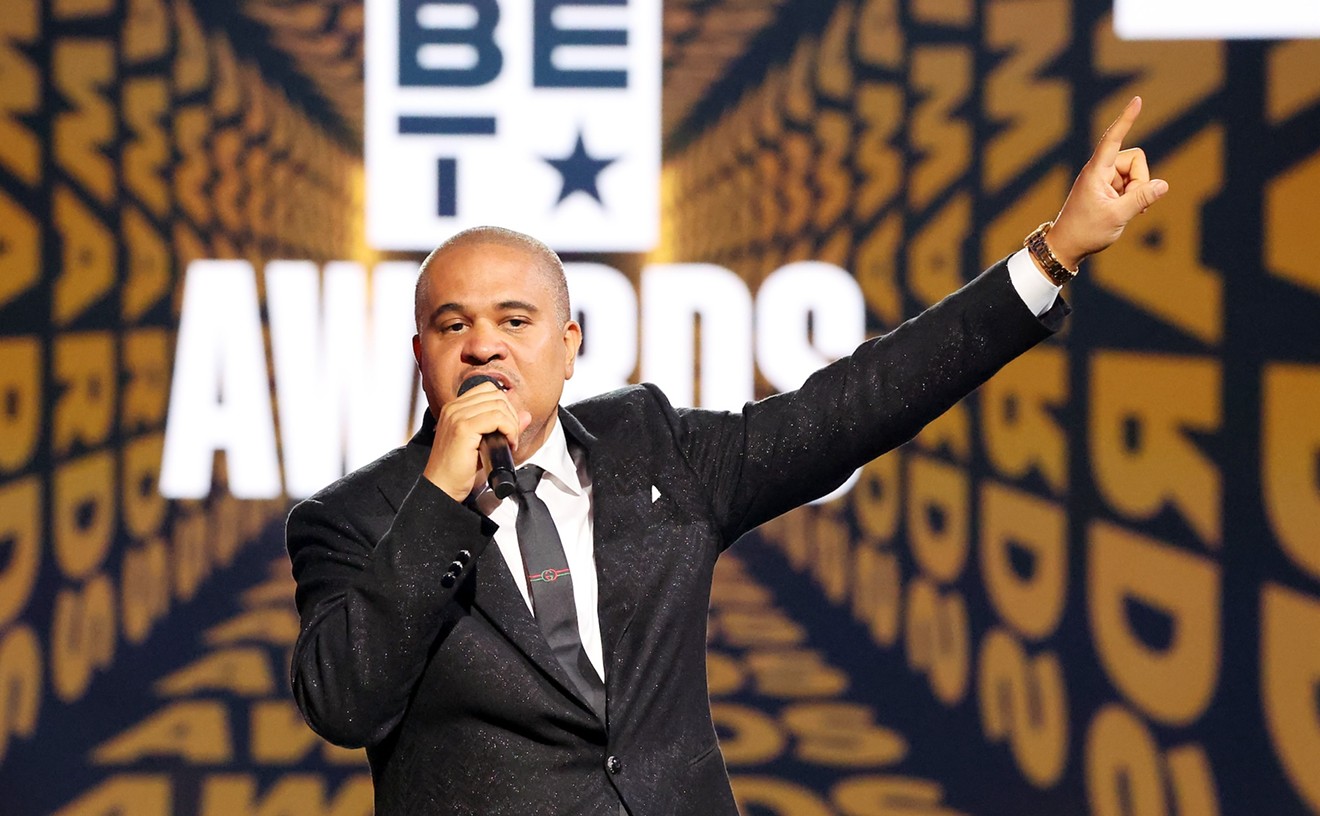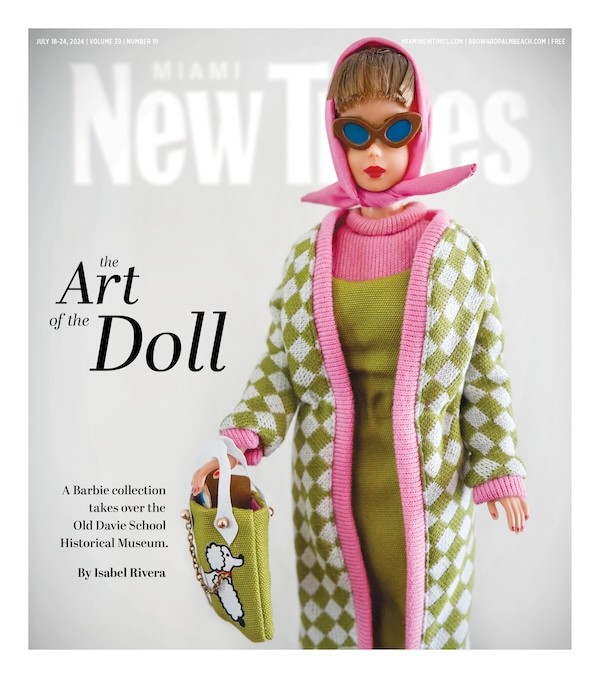Now, following the mainstream breakthrough of their pop-punk pals in Green Day and Rancid, the time may finally be right for Dr. Frank's decidedly apolitical rock and roll. "My whole life in this band has been spent trying to figure out what to say when people yell at us to play faster or tell us to write songs about how pissed off we are about El Salvador," says the 31-year-old Frank during a phone interview from the offices of Lookout Records, the Berkeley label his band has called home for the last six years. "I kind of feel like now our side has finally won. It's about time that actual rock and roll is getting heard by people again. There were so many years when punk was just completely nowhere, so I guess I'm not surprised that those bands have found a larger audience -- their music deserves a larger audience. I am surprised that it's happened in my lifetime, though."
Frank's thumbs-up sentiments concerning punk's commercial breakthrough fly in the face of the underground backlash surrounding bands such as Green Day, the Offspring, and Rancid A the members of which all learned a lot about punk through, in part, Bay Area bands such as the Mr. T Experience. The group was an early player on the Berkeley scene of the mid-Eighties that centered on the Gilman Street Project, a warehouse club that provided both a home and a creative outlet for the city's coterie of idealistic punks. Although the Experience's pop-laced three-chord romps were always out of place among the issue-oriented bands of the time, Frank loved the atmosphere of the dingy warehouse and toasted its importance in 1989 on the poignant "Gilman Street," from the Experience's EP Big Black Bugs Bleed Blue Blood.
On Love Is Dead, the group's seventh and most recent album, Frank returns to the club once again on "Dumb Little Band," possibly the greatest punk-rock autobiography since the Replacements' "Talent Show" from '89. Addressing with generous amounts of self-effacement the success of the bands he helped inspire, Frank has concocted what may be his greatest -- surely his funniest -- song: "Our friends are all busy with their own affairs/Becoming punk rock millionaires/They're taping their live album at the Hollywood Bowl/We're taping our flyers to the telephone pole."
Despite the song's acidic commentary and unabashed cynicism, Frank is sincere when he commends the bands who've grown beyond the boundaries of the Gilman and bristles when asked about the backlash against the scene's most famous sons. "There were some knee-jerk reactions that Green Day had sold their souls to the Devil and predictions that they would someday be sorry," notes Frank, a verbose and often eloquent spokesman for all things punk. "I think the moral dimensions and pretensions of that mindset are a little weak, but I don't think it's gonna last long because [Green Day] is good; no one can say that Dookie isn't a great album. We're in a special position, though, because we alienated those people a long time ago, so now they think we're way past redemption. When we started putting out records, these people would assume that I was writing pop songs because I was trying to sell out and didn't care about exposing the gritty truths of reality and the hell and horror of the American government. They just couldn't believe I was writing those kinds of songs simply because I liked them."
Certainly even the staunchest punk purist would have a hard time accusing the Experience of selling out. Their 1986 debut album, Everybody's Entitled to Their Own Opinion, was issued on the band's own Disorder imprint, and they've since released a slew of singles, EPs, and albums, all on independent labels, including the now-defunct Rough Trade. The Experience has never made it onto the cover of Spin, Rolling Stone, or Alternative Press, nor have their videos graced MTV's 120 Minutes with any regularity. And though Frank and his bandmates A drummer Jym and bassist Joel Reader A have recently quit their day jobs, they still trek across the country in a small van, lugging their equipment from gig to gig to bash out a brand of hook-laden punk that's steeped in the love-and-laughs tradition of such old-schoolers as the Ramones and the Buzzcocks, rather than in the agitpop sloganeering of Naked Aggression or Millions of Dead Cops.
"I've always believed that the great thing about punk rock is the same thing that's great about rock and roll," Frank states. "You've got real songs there that are performed with some kind of energy and tension. What appealed to me when I first started listening to punk records in the late Seventies was the fact that there were actual songs with verses and choruses and bridges that were written by terrific songwriters. Those old records by the Undertones and the Buzzcocks were just brilliant. That's why people are still listening to them, whereas I don't know anybody who throws on Millions of Dead Cops records for their strolls down memory lane.
"It's like the stuff from the Sixties," he continues, on an impassioned roll. "That was a great time for protest music, but I think people today find more relevance in the Beatles' 'I Want to Hold Your Hand' than in something by Phil Ochs. Punk rock in the Eighties turned into this thing where the attitude was more important than the songs, and for the average geek or the not-too-bright adult, it's easy to come up with something that will seem intelligent and socially relevant to them. But really, it's just claptrap. All that pseudo-political stuff is just completely infantile."
Then he hedges his bet. Sort of. "Who knows?" he shrugs. "Maybe all those bands are right. Maybe Maximumrocknroll [punk's ultrapolitical underground bible] is right. Maybe I am being duped by a proto-fascist government. If that's the case, then I'll formally apologize. Right now, though, this world is a great place when you've got a girlfriend who loves you. That's my world-view."
As the bulk of Love Is Dead proves, however, Frank's world-view is hardly so idyllic. Fraught with confusion, longing, and self-doubt, the album maintains his persona as punk's love-struck loser, a defeatist who's forever standing beneath dark clouds. The break-up rocker "The Future Ain't What It Used to Be" opens with one of Frank's patently pessimistic declarations: "I'm going to miss you/But let's not skirt the issue/From now on everything is going to suck." And if you're looking for anthems celebrating, respectively, passive-aggressiveness and romantic dysfunction, wiggle into a straitjacket and spend some time with "I Fell for You" and "I'd Do Anything for You." Even when Frank gets the girl, his nihilism never ceases. In "Thank You (For Not Being One of Them)," he and his girlfriend try to figure out how to kill the guys who just beat him up, and "I Just Want to Do It With You" begins with Frank giving his newfound love a list of all the things he's not: "Cool dude," naturally, is at the top.
"That's just how I write," Frank says of his penchant for verbal gut-spillage. "It's cathartic for me. Somewhere down the line, I guess I engaged myself to write the break-up song from every possible angle. But to an extent there is some distancing at work. Part of the joke or the gimmick is that I'm always wearing my heart on my sleeve, so people expect that of me. But I try to at least twist the songs around enough that they have some new angles. People tell me that the songs have a therapeutic use for them, which is nice because I listen to songs for the same reasons."
That's why this elder statesman of American punk finds solace and reassurance in the open-heart anthems of vintage country and western, ranking George Jones and Webb Pierce among his favorite artists. "I'm a songwriter fetishist," he admits. "When I hear a well-constructed song on the radio, I feel really impressed because it's so deeply divorced from what so many people are doing. I love country music because no matter how bad you feel -- no matter how shitty things are going -- there's always a country singer who's made a song about that exact feeling that's clever, articulate, and sometimes a little funny. Nobody can do that like the best country singers, and when it works, it's pretty swell.
"So many people now don't seem to realize that your songs have to have a point and rhyme and have to develop," he goes on, "so that you end up learning something about that point by the end of the song. That's just basic stuff to me, but these days it's possible to build a career by substituting those things with some kind of directionless pseudo-political, pseudo-intellectual angst. The result is that now you can't turn on the radio without some impassioned person screaming in your face. I just don't get it."
The Mr. T Experience performs Saturday, February 3, with opening acts Quit and Hudson at Club Impact, 4301 N Federal Hwy, Pompano Beach; 946-1704. Showtime is 8:00 p.m. Admission is $6.











